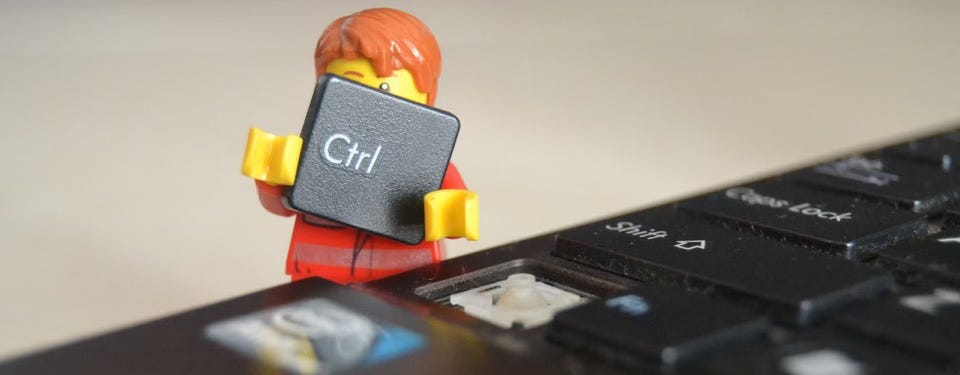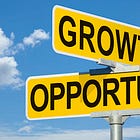So You Want to Control the Controllables... (part 1)
What is control, actually?
I’ll set the mood with a quick clip from a 1999 movie, Instinct.
Coaches are very fond of controlling things. Top coaches are regularly lauded for their obsession and attention to detail. Their admirers comment on how they leave nothing to chance. And, since imitation is the sincerest form of flattery, admiration becomes emulation, which results in even youth coaches trying to control everything they can. Like Anthony Hopkins in Instinct, I want to suggest the idea that control might not be what it’s made out to be.
Where does coaches’ desire to control come from? I think there’s a strong parallel between how coaches and teachers develop, so it’s informative to consider where the desire to control originates in teachers. In a fascinating article1, Deborah Britzman, a researcher in teacher development, wrote that teachers believe they “must master the art of premonition and instantaneous response - both of which depend on the teacher’s ability to anticipate and contain the unexpected - to insure control as a prerequisite for student learning” (p. 449). She goes on to say that “…any condition of uncertainty is viewed as a threat to becoming an expert” (p. 451). Coaches, like teachers, find it incredibly important to be viewed as an expert. It’s no surprise, then, that coaches seek to control to reinforce the perception of their expertise.
What happens when coaches find themselves in situations in which their expertise may be called into question? One more quotation from Britzman: “This is the difficult process of making sense of, and acting within, self-doubt, uncertainty, and the unexpected, while assuming a role which requires confidence, certainty, and stability. It is a painful experience, often carried out in a state of disequilibrium” (p. 452).
I think it’s necessary to recognize that the tension between uncertain situations and a need to control creates a common feeling in coaches. Here’s a quote from a recent episode of the podcast “excellence, actually”. I expect you can recognize the feelings described.
“I think a lot of people look at control and preparation and are like, oh, this is serving what I want to get done in the performance, and not always acknowledging that maybe the relentless preparation is actually about not wanting to feel a feeling that you're feeling.”
- Brad Stulberg
The feeling Stulberg is describing is anxiety. While I’m not talking about a clinical version of anxiety, the feeling is real and should be named so it can be discussed. Dr. Becky Kennedy, in an interview with Ryan Holiday, gives a clearer definition of anxiety in settings like coaching as “some amount of uncertainty coupled with our underestimation of our ability to cope.” She makes the source of anxiety clear, uncertainty. Humans, like coaches and teachers (as Britzman pointed out), have difficulty with not knowing how things they do will turn out. But, as Kennedy points out, it isn’t just the presence of uncertainty that creates anxiety. Anxiety is the product of uncertainty and not being able to deal well with that uncertainty.
Coaches desire to control is directed at changing the first half of the anxiety equation, trying to eliminate uncertainty, rather than trying to change the second half, their own ability to cope. Because uncertainty calls a coach’s expertise into question, coaches often seek to resolve the tension by controlling, which is an effort to re-establish their expertise. While I think there are things that coaches can and should control in the coaching, I want to discuss your ability to cope before I discuss your ability to control.
Coping with uncertainty is a necessary and important skill in coaching because performance in sport is variable and overdetermined. (I’ve written more about that here and here.) The complex nature of performance means that you can never be too sure of the immediate effects of much of the coaching you do. (Daniel Kahneman has an excellent example of how coaches (in this case, flight instructors) fool themselves in Thinking, Fast and Slow.) It doesn’t matter what you do or say as a coach, things aren’t always going to go as you coached them and that’s not a result of how good of a coach you are or how good of an athlete you’re coaching. You can’t eliminate uncertainty in sports and admitting that changes how you coach. As the Zen saying goes, “Everything breaks. Attachment is our unwillingness to face that reality.” Accepting that things break, that they don’t go to plan, is a hard step to take.
Coaches frequently get distracted when situations don’t bend to their will, when things break despite coaches’ best efforts to keep them intact. A call doesn’t go the way you wanted? A team or a player doesn’t execute after explicit instruction? The first example is often treated as something you can’t control, but the second? That case is often met with far more consternation. That’s where the work needs to be done.
But maybe “work” isn’t the right word. The response isn’t to do more, or to coach more. The response, surprisingly, isn’t to do less either. The response is to let go. That’s how you cope with uncertainty. You coach differently when you let go. What does that mean? Letting go means decoupling the perceived quality of your input from the perceived quality of the output. (See Thinking in Bets for more about this concept.) When you accept that outcomes are uncertain, even when athletes in your care are trying to do what you ask, then undesired outcomes don’t incite the same stress. Such outcomes are just things that happen instead of evidence of bad coaching or bad athletes. This is the first lesson of controlling the controllables: the most important thing you should be working to control is your expectations. I don’t mean changing the competitive standards you expect athletes to work towards. I mean changing how you expect cause and effect to work.
It’s important to decouple inputs from outputs because clear relationships between them typically don’t exist the way they’re expected to. That’s because coaching inputs don’t always have positive or negative results. Despite a coach’s best efforts, the outcomes of their coaching may be neutral or ambiguous. If you let go of the expectation that the results of your coaching must be positive, negative, or even noticeable, you open up your ability to base your coaching on something other than black-or-white success or failure. Think of the cliché, often attributed to John Wooden, “Although there is no progress without change, not all change is progress.” Letting go means not expecting visible progress from all your coaching but, instead, creating opportunities for change.
Another important part of letting go is scaling your expectations. Why shouldn’t you expect visible progress from all your coaching? Because the future will most often closely resemble the present. When complex things like athletic performance change, they typically change slowly, like the proverbial watched pot. It’s difficult to pinpoint the exact moment when water goes from not-boiling to boiling and the same can be said for athletic performance. There won’t be a moment in which an athlete goes from unskilled to skilled, it is a gradual, yet uneven, transition. Coaching should reflect an understanding of that truth.
If there is something positive to be expected as an outcome of your coaching, it is that your choice of intervention results in a positive change to the likelihood that progress will take place. That’s what letting go is about. That’s how you start to make friends with uncertainty. As discomfort around uncertainty lessens and coaches get better at letting go, they can become more intentional about their choices around intervening in practice or competition. If, as Britzman suggested, coaches wish to be experts, they should work to become experts at how and when they intervene rather than becoming experts at knowing things.
There’s a lot more to get into about control and intervention, but I want to stop here and invite you to spend some time reflecting on your relationship with control, expertise, and learning. Part 2 will explore what it means to intervene as a coach rather than control.
Britzman, D. (2011). Cultural Myths in the Making of a Teacher: Biography and Social Structure in Teacher Education. Harvard Educational Review, 56(4), 442–457. https://doi.org/10.17763/haer.56.4.mv28227614l44u66




